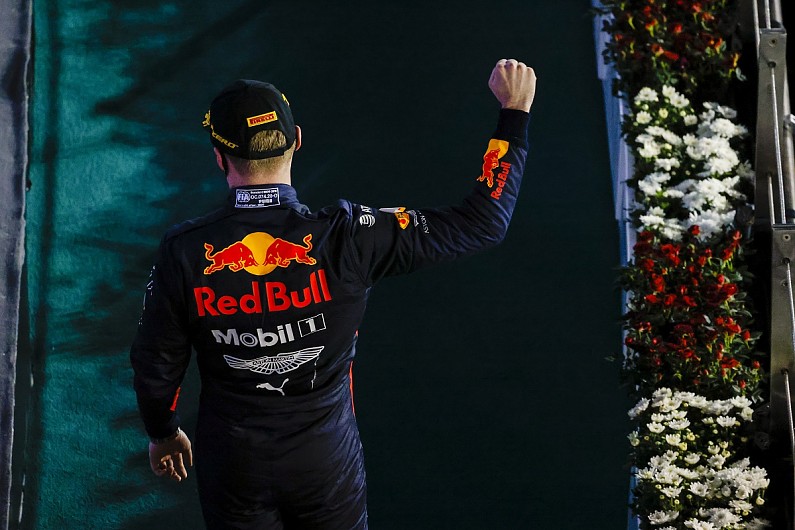The final round of the 2020 Formula 1 season may not have been the most exciting of the year, but was significant for multiple reasons as chapters came to a close and warning shots were fired for 2021. LUKE SMITH recaps the major talking points in Abu Dhabi
Formula 1’s strangest of all seasons came to a close in familiar fashion on Sunday as Abu Dhabi played host to the 2020 finale.
The spectacular facility at the Yas Marina Circuit again stood in stark contrast to the on-track spectacle, with this race unlikely to live long in the memory.
Nevertheless, it offered closure to a number of important eras in F1 and drew a curtain on a season some feared would never happen as the COVID-19 pandemic surged in spring.
Here are 10 things we learned from the 2020 Abu Dhabi Grand Prix.
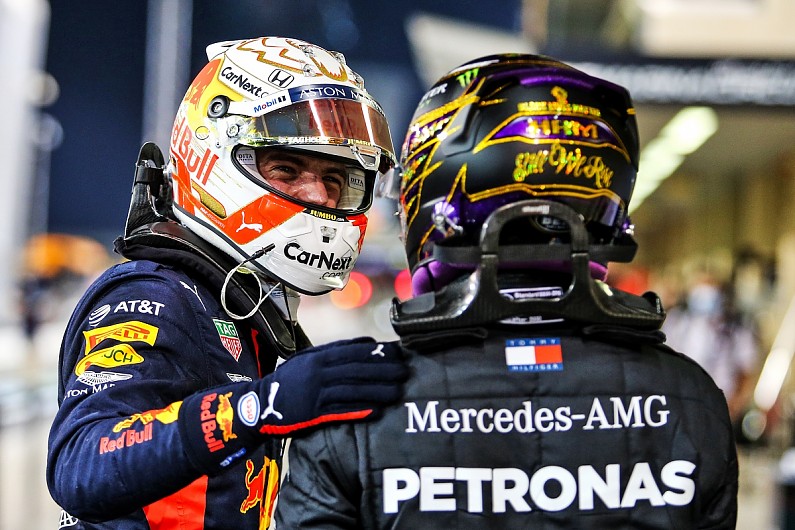
1. Red Bull peaked too late in the season – again
Max Verstappen’s domination of the Abu Dhabi Grand Prix acted as a late-season high point for Red Bull, who spent much of the year a distant second to Mercedes for outright pace.
The team has certainly made strides forward in recent races, particularly in qualifying, where Verstappen has regularly threatened both Lewis Hamilton and Valtteri Bottas. But as Mercedes struggled with its tyres, Abu Dhabi finally presented the opportunity for Red Bull to return to the top of the podium.
PLUS: Why engine caution wasn’t the biggest factor in Mercedes’ Abu Dhabi defeat
Once again, though, it’s too little, too late. Red Bull consistently tends to start the season slowly, allowing Mercedes to dominate early on, before developing quickly and ending the year close to the German team – only for the gap to then return in Melbourne.
The carryover of the cars into 2021 – estimated to be 60% by Red Bull – means there is a better platform from which Verstappen could plot a title bid next year. But given Mercedes hasn’t brought any new bits to its car since Spa in late August, it will surely already be ahead of the game for next year.
It’s a familiar story that will probably keep us talking over the winter and lend some hope for the start of the new season – before Mercedes finishes half a minute up the road in Melbourne.
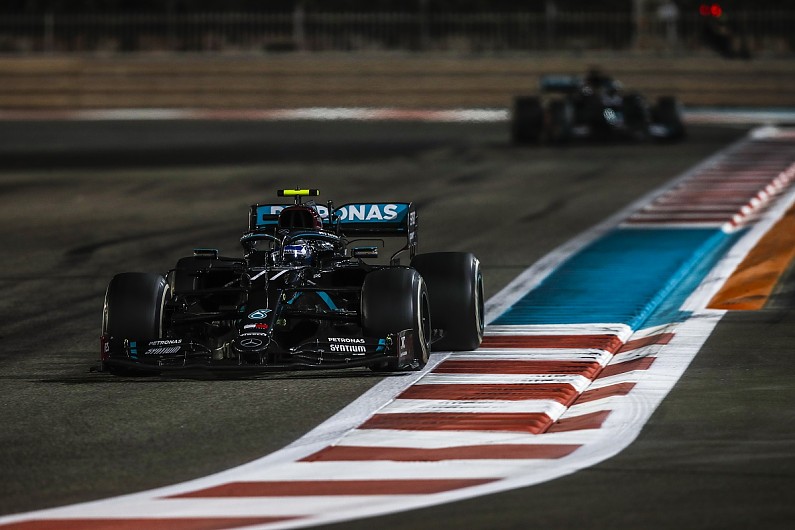
2. Bottas is already taking action to bounce back
There was a fair bit of radio chatter down at Mercedes through the final race of the season, particularly on Bottas’s car.
His race engineer, Riccardo Musconi, gave him a couple of gentle giddy-up calls during the race, but the more notable communication came in qualifying when team principal Toto Wolff made a rare appearance on the radio waves during a session, asking Bottas for “all you have”.
Wolff revealed after the session that he had sat down for talks with Bottas earlier in the week after a difficult period for the Finn, with one of the takeaways being a need for more feedback and positive reinforcement.
It was a solid display from Bottas to close out a tricky year for him, but the very fact him and Wolff sat down for those talks proves he is already trying to take action to recover for next year. It’s a positive step for a driver who has ended 2020 in real need of a break.
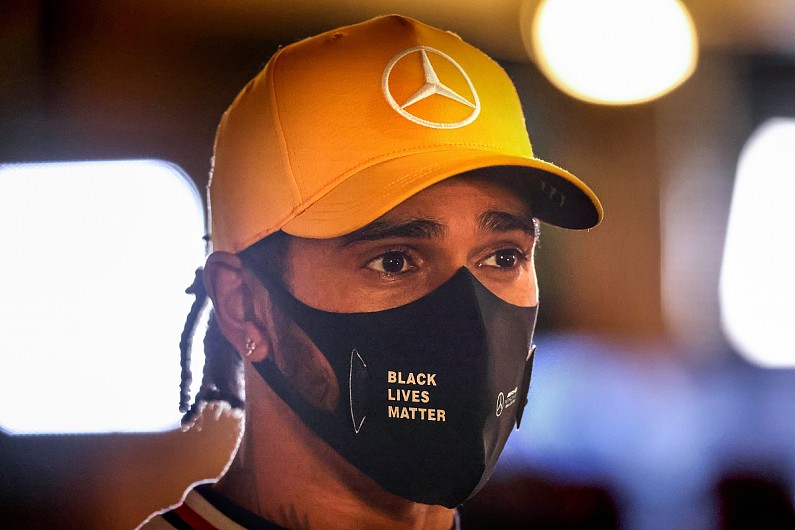
3. Hamilton’s COVID-19 struggles didn’t cost Mercedes the win
It was welcome news for the F1 paddock – perhaps excluding George Russell and Jack Aitken – that Hamilton would be returning to race in Abu Dhabi, getting back in the paddock on Friday after returning negative test results for COVID-19.
But the seven-time world champion was hardly firing on all cylinders this weekend, admitting himself that he was “not 100%” after being “bed-ridden” by the virus he is thought to have contracted in Dubai ahead of the Bahrain Grand Prix.
Hamilton qualified third on Saturday, finishing less than a tenth off pole, and then turned in a rather quiet display in the race to complete the podium, never really getting close to Bottas in second.
Did Hamilton come back too soon? Perhaps, but drivers often race feeling under the weather, and are always keen to get in the car when they can. The call can really only lie with the driver themselves, and Hamilton – someone who fastidiously looks after himself with a plant-based diet – felt it was the right thing to do.
But a fully-fit Hamilton is unlikely to have changed the race result. Mercedes was simply the second-best team in Abu Dhabi, meaning that once pole went Verstappen’s way, it stood little chance of victory.
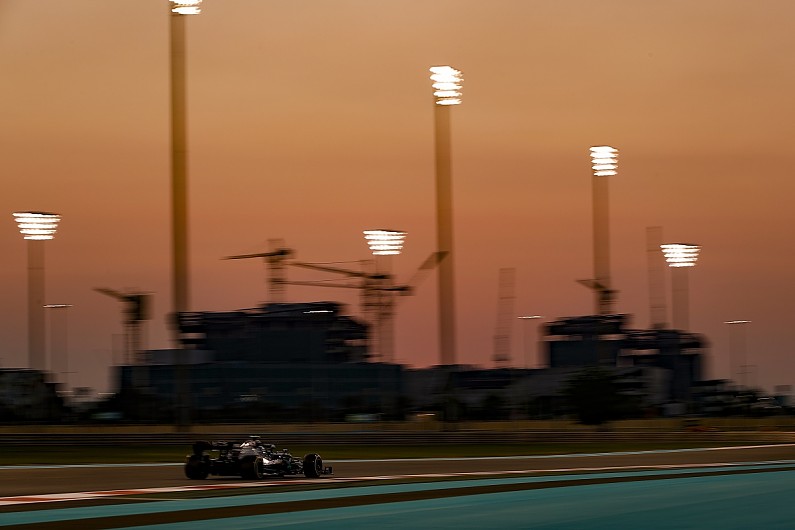
4. The final race exposed some small chinks in Mercedes’ armour
Mercedes may not have given the fastest car in F1 history the send-off it desired, but as it has done repeatedly through the V6 hybrid era, the defeat served up some lessons that will not be ignored.
PLUS: How Mercedes ambition produced the fastest F1 car ever
Both Hamilton and Bottas struggled massively on the Pirelli tyres in Abu Dhabi. After feeling “fairly relaxed” about its chances on Friday, as per trackside engineering director Andrew Shovlin, FP3 threw up a completely different picture for Mercedes as its woes emerged.
“It became painfully apparent to us that we didn’t have the speed to be able to challenge Red Bull, so we just sat there and finished second and third, and couldn’t really make their lives difficult,” Shovlin said, adding that even split strategies wouldn’t have been enough to win in Abu Dhabi.
It’s something Mercedes will review and work on, similar to the “gremlin” with the MGU-K that prompted it to run all of its power units in a conservative mode in Abu Dhabi. Although it was a minimal time loss, estimated to be less than one-tenth of a second per lap, it was still another area for Mercedes to work on.
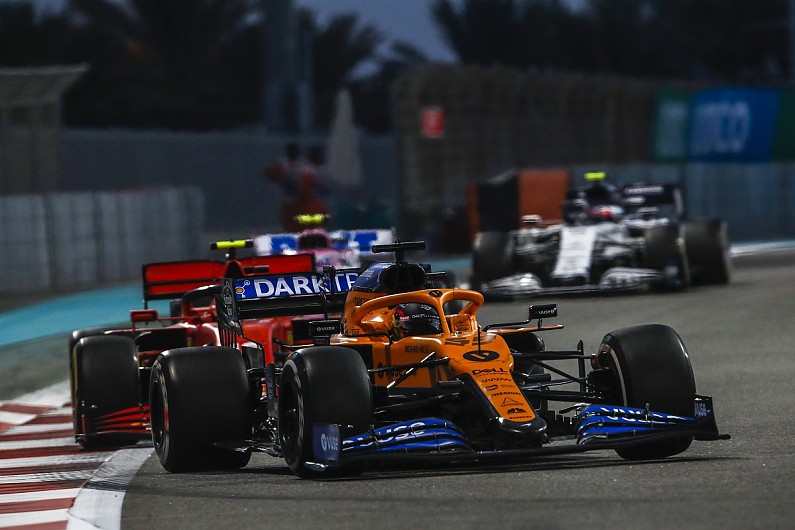
5. Consistency won McLaren the battle for third place
Mercedes may have been the dominant team in the title fight this year, but the race for third in the standings has been particularly fascinating as McLaren, Racing Point and Renault tussled throughout the year.
McLaren managed to overturn a 10-point deficit to Racing Point in the final race to nab third, aided by Sergio Perez’s early retirement and an underwhelming display from Lance Stroll, who could only finish 10th.
All three teams can easily point to some missed opportunities this year to comfortably score enough points to give them third, but the fact of the matter is that McLaren was more consistent and balanced as a team. It was rarely third-fastest, yet regularly brought home decent points hauls with both cars.
Carlos Sainz Jr. and Lando Norris ended the year split by eight points in the standings. The gap at Racing Point between Perez and Stroll was 50 points, while Daniel Ricciardo was 57 clear of Renault team-mate Esteban Ocon.
And of course, there is the 15-point constructors’ championship penalty Racing Point received for copying Mercedes’ brake ducts design. But in truth, that wasn’t where P3 was lost for the pink team – it was a mix of bad luck and missed opportunities.
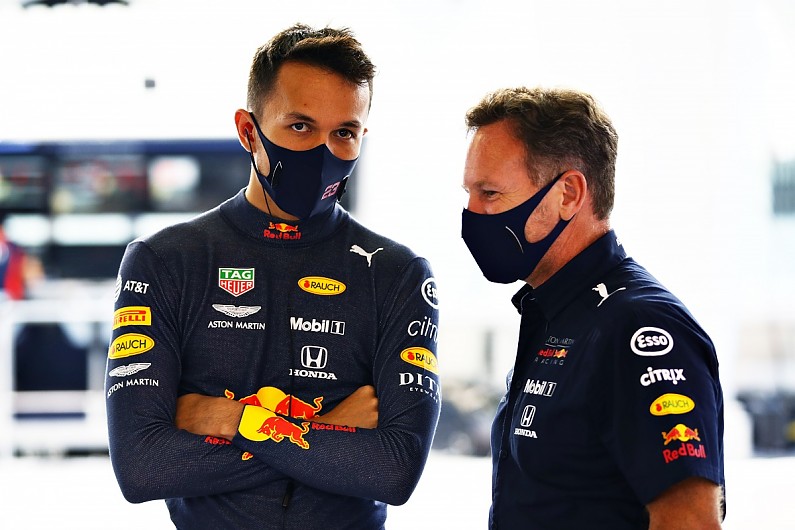
6. Albon’s closing statement at Red Bull was good, but hardly convincing
Red Bull always said it would give Alexander Albon until the end of the season to impress for a seat for 2021, making Abu Dhabi his final opportunity to plead his case.
Albon finished fourth, which is really the bare minimum for a Red Bull driver, and went on a rapid late charge to put Hamilton under a bit of pressure in third, cutting the gap from nine seconds to just 1.5 seconds late on.
He did well to pass Norris in the first stint, ensuring he did not get stuck behind the McLaren under the safety car, but by that time, the Mercedes cars were already a long way up the road.
Thankfully for Red Bull, Verstappen’s pace was so good that split strategies wouldn’t have been enough for Mercedes – but had it been, Albon likely would not have been there to play rear-gunner and help his team-mate out.
It again highlights the issue Red Bull is facing. A decision is not thought to be too far off regarding Albon, who could be replaced by Perez, but it hardly has a strong enough case from the Anglo-Thai racer to go on.
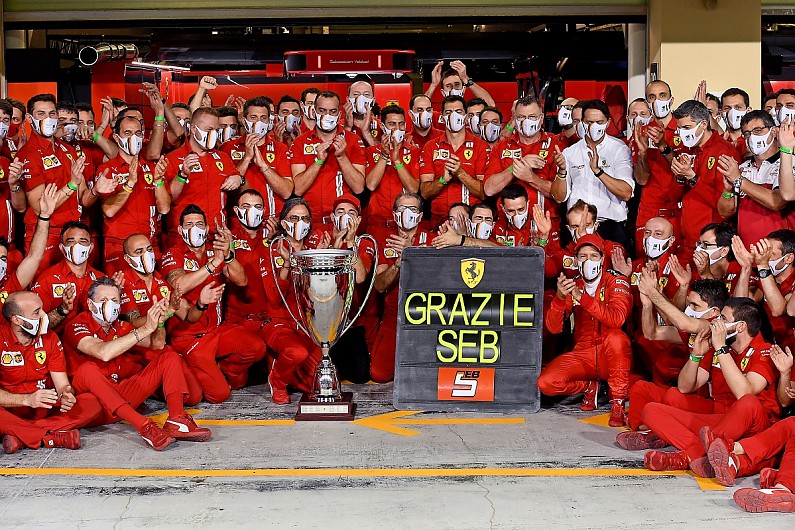
7. Vettel’s Ferrari swansong was sweet – off-track, at least
Sebastian Vettel’s final outing in Ferrari colours did little to inspire as the team struggled throughout the weekend to hassle the upper-midfield runners, leaving him a disappointing 13th at the chequered flag.
The attempt to run Vettel long was wise, allowing him to shuffle up into the points for a while, and he defended well from Stroll in particular to stay ahead. He simply didn’t have the pace he needed on switching to mediums to get some farewell points.
But off-track, it was a really sweet end to his time at Maranello. Vettel was given a guard of honour by the Ferrari mechanics as he pulled out of the garage for the final time. Team-mate Charles Leclerc ran a tribute helmet to Vettel, and the pair swapped lids after the race, with Vettel writing an exceptionally kind message.
Vettel was the beating heart of Ferrari’s future for a while, and gave everything to try and end its wait for a world title. He really embodied what it is to be a Ferrari driver. And while his final season was largely forgettable, the last race at least saw him get some love and recognition.
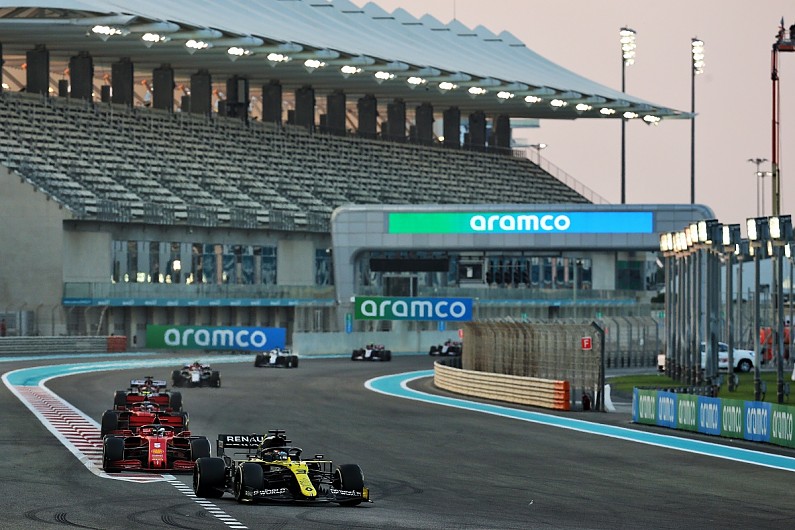
8. The Abu Dhabi layout needs to change
A favourite quote among Autosport’s staff comes from a now-famous travel video GP Racing executive editor Stuart Codling filmed en route to Singapore a few years ago. Stood in the humming, busy terminal during a layover, Codders quips: “Abu Dhabi airport. Oh. The. Humanity.”
“Oh the humanity” was one way to sum up the season finale as a whole, because the race was dire. There was no real action or overtaking. All passes were done with DRS into Turn 8 before defending on the next straight. The safety car killed any strategy variation. It was the procession of all processions.
“The amount of messages I got during the race with the sleeping emoji – it was the most I ever got,” said Mercedes team boss Wolff after the race. “Maybe it’s worth looking at the configuration. Maybe there are track configurations we could look at that would make it a little bit more interesting for overtaking purposes.”
It’s an annual discussion, but one that is surely worth discussing more than ever as F1 tries to perfect its 2022 package. The issue in Abu Dhabi has always been the off-camber corners, designed to punish any errors, but only make it hard to maintain grip levels while trying to follow a car.
“I know there is a few alternatives maybe around here, because unfortunately on Sunday, it is tricky,” said Renault’s Ricciardo. “It’s sometimes a bit grim from an entertainment point of view.”
Team-mate Ocon agreed, even if a little surprised when this writer told him the race was “crap”. “At least I manage to get an overtake in the last lap!” he replied proudly. “You enjoyed watching that, right?”
It was a nice move on Stroll for P9, certainly – but we need to see more of that in the future. Hopefully F1 can have a think about what it might be able to do with the Yas Marina Circuit, because as stunning as the facility may be, the regular snoozefests do little to endear the track itself to F1 fans across the world.
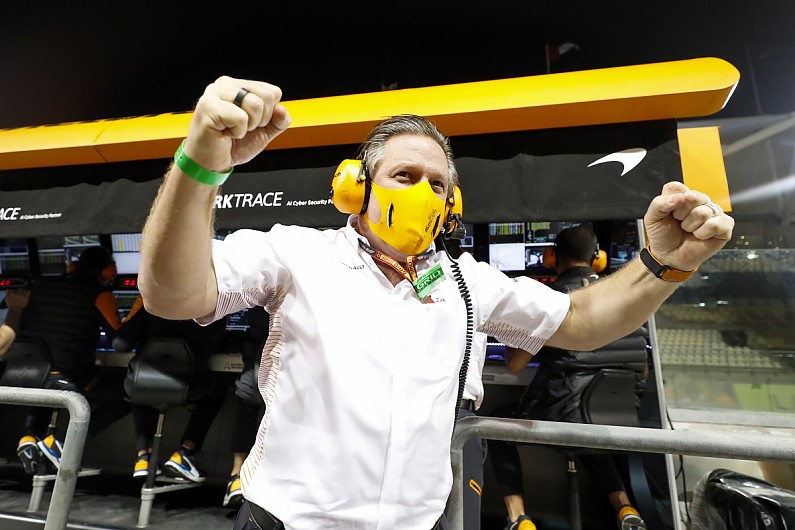
9. McLaren’s future is looking brighter and brighter
Sunday was a good day for McLaren. It finished with a double-points finish that snared third in the constructors’ championship away from Racing Point, bringing with it a decent slice of additional prize money, but it had also started with some excellent news.
The announcement that US investment fund MSP Sports Capital had bought an initial 15% stake in McLaren Racing was a boost at the end of a rough year. McLaren was hit hard by the COVID-19 pandemic as car sales ceased and shutdowns ensued, but it has been working hard to try and restructure itself financially to bounce back well.
MSP Sports Capital has involvement in a number of American sports, including the NBA and Major League Baseball, and has been looking at F1 for some time. With Mercedes engines on the way next year, the budget cap coming into force, and a new set of regulations due in 2022, things are looking up for McLaren.
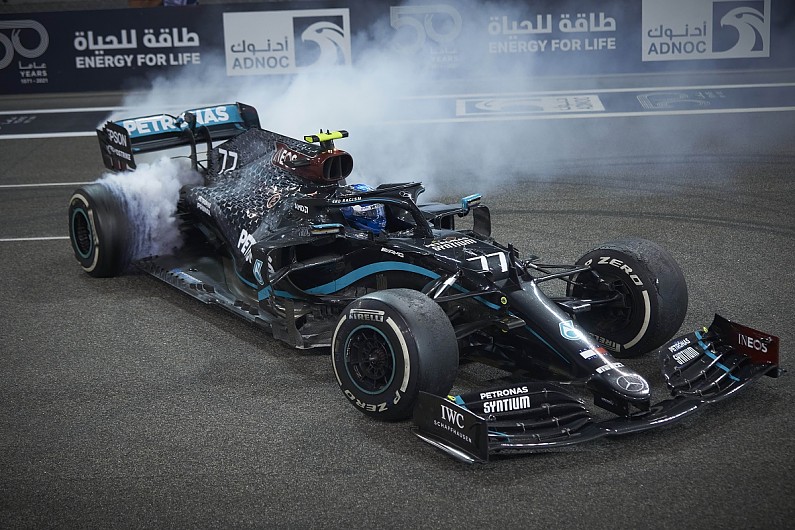
10. 2020 will be a year for F1 to remember
As the chequered flag flew in Abu Dhabi, it marked the end of an unforgettable and unique F1 season. Its 70th anniversary celebrations were never quite meant to go like this, but given how bleak the picture was in March and April as race cancellations mounted, to have achieved a 17-race season is astonishing.
It was a true collaborative effort between F1, the FIA, the teams and the tracks to make it happen. The COVID-19 testing system and ‘biosphere’ approach has been a success, with more than 80,000 tests being completed and returning fewer than 100 positive results.
Tracks such as Mugello, Imola, Algarve, Istanbul Park and the Nurburgring spiced up the calendar, giving F1 some food for thought as it plans what its future schedule may look like. We were also treated to some terrific shock results, crowning new race winners in Pierre Gasly and Sergio Perez, as well as a heart-stopping incident in Bahrain with Romain Grosjean’s accident that reminded us all just how far safety standards have come.
F1 can be extremely proud of what it has achieved this year. 2020 is a year the world will want to forget for many, many reasons, and it hasn’t been all good for F1. But there are some great positives and memories we will cherish forever.
The Autosport 70 special, celebrating the best of motorsport, is no longer available to buy online, but is available to new magazine subscribers. To subscribe, please go to: autosportmedia.com
